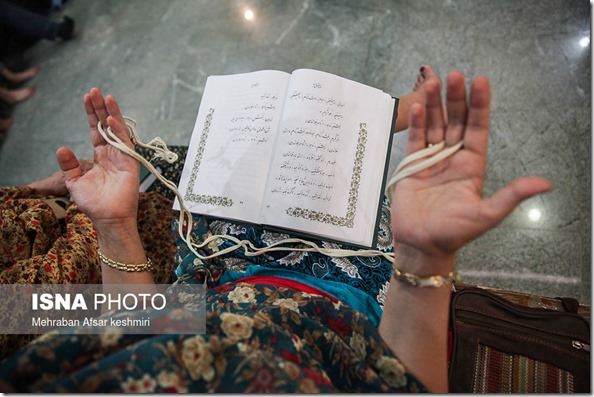Each year from June 14–18, thousands of Zoroastrians from Iran, India and other countries flock to an ancient fire temple at Pir-e Sabz or Chak Chak village in central Iran.
Article on Iran Front Page News
Each year from June 14–18, thousands of Zoroastrians from Iran, India and other countries flock to an ancient fire temple at Pir-e Sabz or Chak Chak village in central Iran.
The village Chak Chak is part of Ardakan County in Yazd province, central Iran. A fire temple located in the village is the most sacred of the mountain shrines of Zoroastrianism.
Chak Chak serves as a pilgrimage point for pious Zoroastrians who annually flock to the site from Iran and all around the world.
Tradition has it that pilgrims are to stop riding the moment they catch sight of the temple and complete the last leg of their journey on foot.
In Zoroastrian belief, Chak Chak is where Nikbanou, second daughter of the last pre-Islamic Persian ruler, Yazdgerd III of the Sassanid Empire, was cornered by the invading Arab army in 640 CE. Fearing capture Nikbanou prayed to Ahura Mazda to protect her from her enemies. In response to Nikbanou’s pleadings, the mountain miraculously opened up and sheltered her from the invaders.
Notable features of Chak Chak include the ever-dripping spring located at the mountain. Legend has it that these drops are tears of grief that the mountain sheds in remembrance of Nikbanou. Growing beside the holy spring is an immense and ancient tree said to be Nikbanou’s cane. Legend also has it that a petrified colorful cloth from Nikbanou was also visible in the rocks, although pilgrims have since removed it.
Here are ISNA’s photos of the recent gathering of Zoroastrians in Pir-e Sabz:

